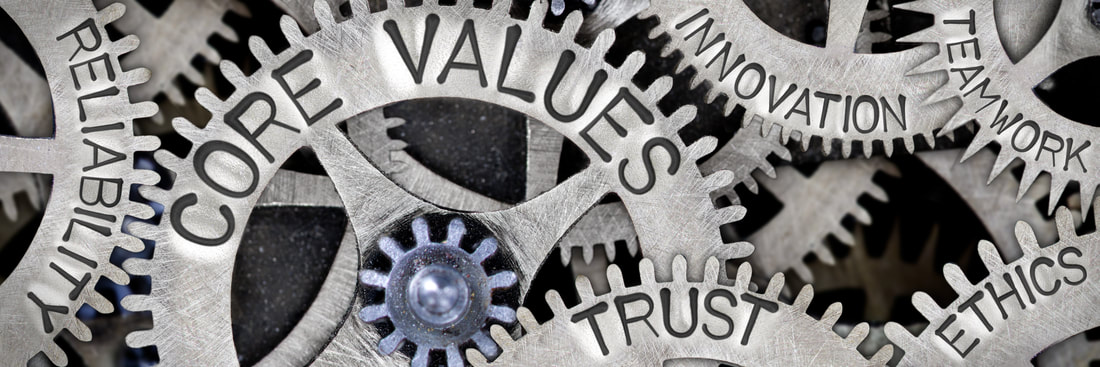|
If you recognize the warning signs of impending burnout in yourself; remember that it will only get worse if you leave it alone. But if you take steps to get your life back into balance, you can prevent burnout from becoming a full-blown breakdown.
Some tips:
Maybe you are increasingly aware of an issue or behaviour pattern you are willing to change which is activating your curiosity. You are reading this article which shows that on some level there is a curiosity. You might be interested in the topic, or maybe have a colleague or friend who is working on personal development with a coach already recommended you check it out. Remember: It is in fact a strength to reach out, not a weakness.
Coaching Scenarios:
Some thoughts to consider: You are:
The next steps:
It is important to know the difference between all the various approaches to change, see my article Coaching vs. Trainings / Consulting / Mentoring / Traditional Therapies for more information. Suzie Doscher(PMC), a Professional Master Coach (IAPCM) Coach focusing on Personal Development. Check out Suzie's books full of SELF COACHING Exercises - 'Balance by Suzie Doscher' available in any Amazon store worldwide. Please also visit: www.suziedoscher.com for more info about coaching. by Suzie Doscher Photo credit: Shutterstock Hiring a candidate can feel like reaching the finish line of a journey. After weeks or months of recruiting efforts, you finally found the right fit. But it’s not – it’s actually the beginning of a crucial stage of your hiring process: onboarding.
“It is an incredibly vital stage of the hiring process because employees are acclimated to their position, the company’s philosophies, and what the organization has to offer during onboarding,” says Jamie Olson, Head of People & Culture at Continu, a learning amplification platform for teams. “It also increases motivation, resulting in employees who are dedicated to the company’s success, and promotes the retention of new recruits by making them feel like a part of the team.” Your onboarding process is the first impression. It can make or break the long-term chances of success of your new team member – it’s when expectations are set and important information is passed along. Olson broke down everything you need to know about how to effectively welcome a new employee to the team. Learn more in the checklist and onboarding tips below. The ultimate onboarding checklistFirst of all, it’s important not to “wing it.” Onboarding doesn’t consist of greeting your new report and making a few introductions before leaving them on their own. You’ll need to create a streamlined process that is consistent every time you hire someone new. Here is a checklist. Core values are personal to each individual . They can be described as your code of ethics, your fundamental principles, your standards, or personal rules. I like to refer to them as the bricks you build your foundation on. Knowing what you truly value in life, what makes you feel fulfilled and gives you a sense of meaning, connects you to your true self and is an important part of your personal development.
Core values are about YOU – not what society, the media, your education, your colleagues and friends or family deem as important, or of value, but what is important to you, what you value. Stress tends to set in when you are not treating these values with the respect they deserve. Not respecting your core values means you are not respecting your true self. In turn your self-esteem could suffer, which of course in turn de-creases the quality of your day-to-day life. When the feeling of being calm and peaceful is present, and the quality of day-to-day life is high, you feel good about yourself and who you are. Your self-esteem and self-worth benefit from this. Caroline Myss, a five-time New York Times bestselling author and internationally renowned speaker in the fields of human consciousness and mysticism says: “Being able to speak and live with the truth, your truth, means you have to become comfortable with having your power, be comfortable with all that is true about you, all that is beautiful about yourself, this is being okay with yourself.” Consider the Core Values Process I offer as a gift to yourself. The focus can be on your life, your overall life which would include your career, your career alone or your leadership values (this is a great exercise to do as a new leader or to update your existing leadership skills aligning them with your personality). Get in touch. by Suzie Doscher Photo credit: Shutterstock You did it. You made it out — hopefully with some shred of sanity and sense of personal self-worth. But even if those things feel unrecoverable, they aren’t. You can get them back. Maybe you’ve moved on to greener pastures. If that’s the case, well done. You’ve taken an important step towards preserving (or gaining back) your emotional and physical health. Maybe, although less likely, your boss either moved on or was fired. Most of the time, these situations don’t fix themselves, as for some reason senior leadership would rather keep a single toxic boss employed than the multiple high-quality employees who leave because of them. In either case, there’s a residual emotional and physical toll that lasts well beyond the end of the boss-employee relationship. I know; I’ve been there. In the span of just two years of reporting to a toxic boss, I went from being a high-performing, high-potential engineering leader to nearly leaving the company I’d spent 15 years at because of one single person. My boss. That’s how badly I needed to get away from her. Feedback will always be ineffective if the recipient doesn’t understand it. Here’s how to make sure your conversations always achieve the intended result.
How effective are you at giving feedback? When managers answer this question, they often describe how and how often they deliver feedback to their employees: timely, direct, actionable, contextual, continuous. As long as the feedback is delivered often enough and directly enough, we reason that it’s effective. Unfortunately, this couldn’t be farther from the truth. A recent Harvard Business Review article by Michael Schaerer and Roderick Swaab titled “ Are You Sugarcoating Your Feedback Without Realizing It?” provides a grave reality check. Their research shows that many managers deliver inflated feedback unintentionally, and often think they’ve been much more clear then they have been. Indeed, in one study mentioned in the article conducted at a multinational nonprofit organization, Schaerer and Swaab observed that “the employees perceived feedback as being more positive than their managers thought they would.” When the feedback became more negative, the understanding gap widened. By Karen Bridbord, Ph.D., Licensed Psychologist and Organizational Consultant When I wrote about the inflection of workplace culture back in May, I was expecting the pandemic to be a distant memory by now. Remember when we all thought it was going to last three weeks? Yet today, six months into the most significant global health crisis of our lifetime, we find ourselves still grappling with uncertainty. Instead of creating new rituals to uplift and ground us as we find ourselves, as I recommended in the beginning of the pandemic, we now must find a way to sustain ourselves. We’re collectively exhausted. This pandemic is a marathon, not a sprint, and we need to act accordingly. This includes adjusting our company values and how they’re operationalized in our organizational cultures. by Suzie Doscher, Executive Coach and Life Coaching focusing on Personal Development, Self-Help Author: Balance - A Practical Handbook for Life's Difficult Moments
Coaching your team? Add this skill to your coaching style – being non-judgmental. There is an abundance of articles on being a coach to your people. I enjoy reading the quality information provided by the Harvard Business Review. The desire to increase, enhance or maintain the quality of work, and in some cases even the quality of life at work, is evident. The article in the HBR: Most Managers Don’t Know How to Coach. But They Can Learn, offers wonderful insights on what coaching is all about and aims to achieve. Your responsibilities include leading, motivating, inspiring and with your coaching you hope to further their growth, development and enhance their skills. Suzie Doscher: I have attended some events and thought the same "UGH" when I heard the word Icebreaker! I whole heartedly agree that bringing the group together, creating a safe environment and encouraging a feeling of connection is important for a workshop / group event to get off the ground successfully. Some people will open up more easily if they have had 'eye contact' with the people next to them, others are happy to open up without this being necessary. Individuals are exactly that 'individual'. I like the suggestions in this article because they offer 'ice breakers' that are more neutral and connect the group in a more meaningful way in my opinion. As Peter Block says: "“Connection before Content.” If a group is going to concentrate on a difficult issue, they need to learn who others are, the skills they bring, the experience they represent, and the values they hold". and Nancy Dixon's rule are great. Please! No More Icebreakers - |
Suzie Doscher is a Professional Executive Coach focusing on Personal Development. Located in Zurich, Switzerland. Her approach to personal development is practical and successful.
Suzie is happiest when helping people. Her vision is everyone should have access to techniques for personal growth and development. This was the motivation behind her book. Author |









![Work-Life-Balance-Coaching [ExecutiveCoach] Coaching-Switzerland {LifeCoachZurich} SuzieDoscher.jpg](/uploads/2/2/3/8/22386102/work-life-balance-coaching-executivecoach-coaching-switzerland-lifecoachzurich-suziedoscher_1_orig.jpg)
 RSS Feed
RSS Feed

